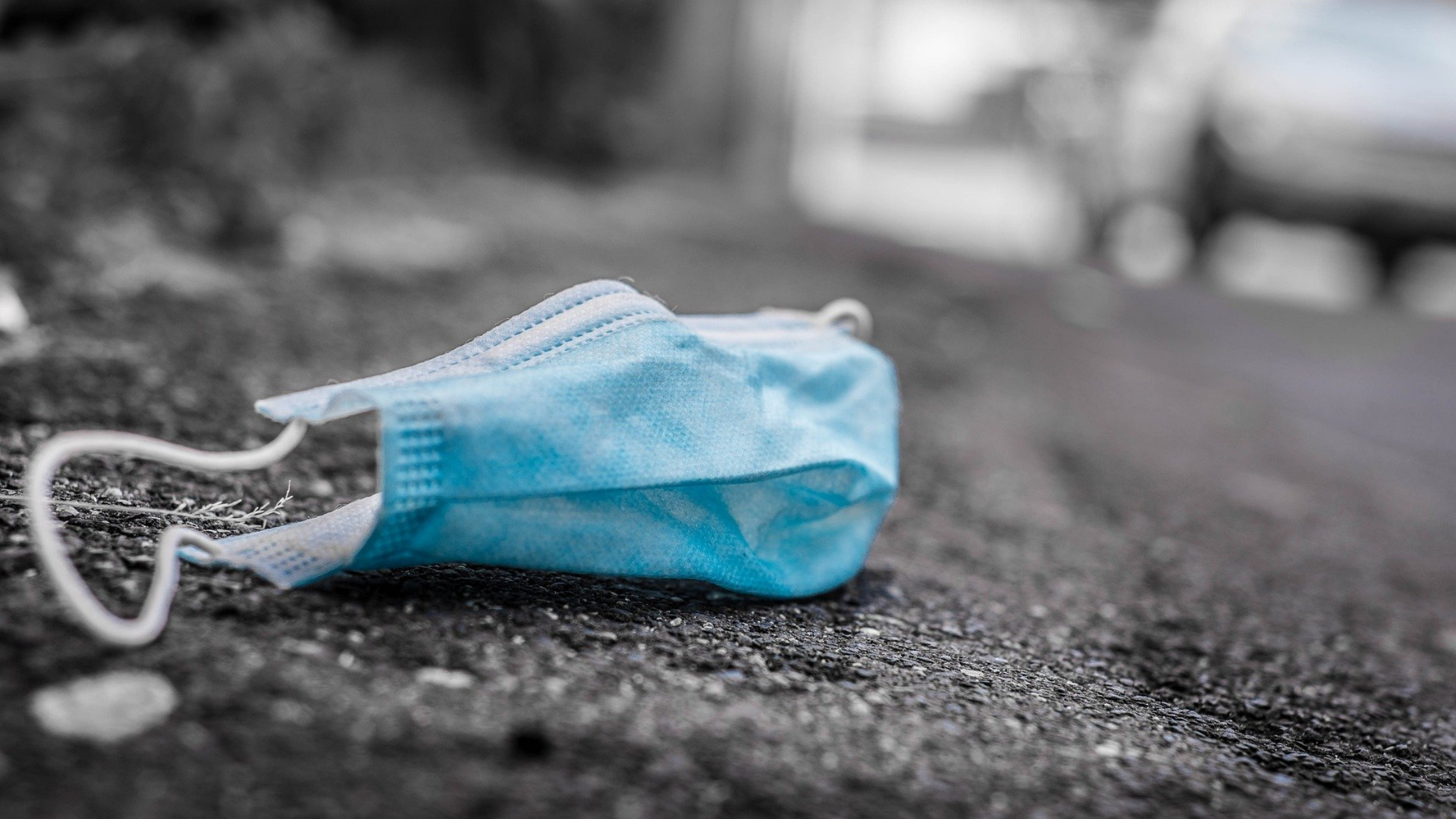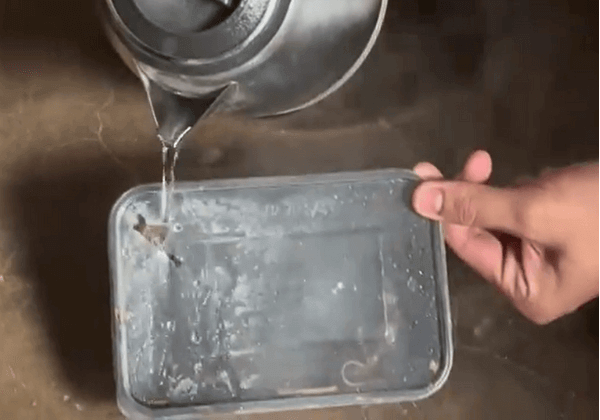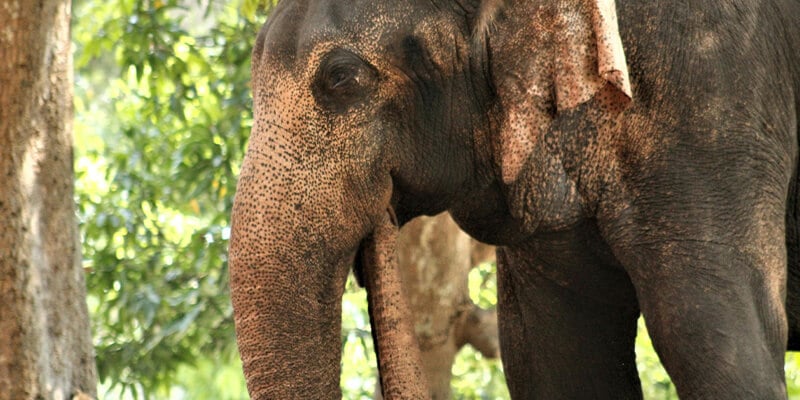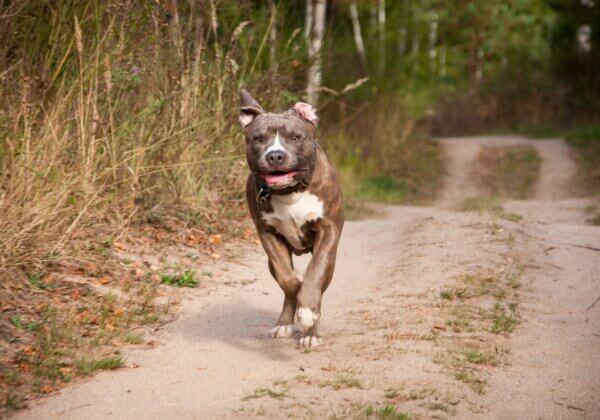Don’t Let Your Masks Harm Animals! How to Dispose of Them Responsibly
Face masks – a vital tool to reduce the spread of COVID-19 – aren’t going away anytime soon, but when we throw them away, these necessary items can harm the environment and the animals who share our planet. The good news? We can all do our part by taking a little extra care to ensure that our masks don’t hurt fellow animals!
The Problem With Throwing Away Face Masks
Already, mask litter has polluted parks, sidewalks, and our city streets. Reports have been shared of wildlife tangled in the elastic straps common to most plastic, disposable masks. Dolphins, turtles, and other marine animals can easily choke or suffer from fatal bowel obstructions when they mistake personal protective equipment for food.
Like all other plastic materials, masks pose a risk to our waterways, where they’ll degrade into even smaller pieces of microplastic. When plastic breaks down, it releases hazardous chemicals that can exacerbate oceanic acidification.
What You Can Do to Protect Animals From Disposable Face Masks
Properly dispose of your masks. Check to see if your local recycling facility takes disposable masks, or throw them away in a receptacle. Be sure to cut the ear straps to help prevent wildlife from getting entangled in them.
If you work outside the medical field, consider buying reusable masks that are easily washable. Not only will you help reduce our overwhelming use of plastic, you can also show off your personality (by letting the world know where you stand on speciesism through your mask’s design) while doing your part to combat the spread of the novel coronavirus.
Clip those bands, and crush your cans. Securely dispose of used masks.
Remember, all trash puts animals at risk. Animals of all kinds often mistake trash for food or shelter. Securely cover your discarded masks by wrapping them in paper, and be sure to toss them into a garbage bin and not anywhere else, to ensure that animals won’t ingest or become entangled in them.









